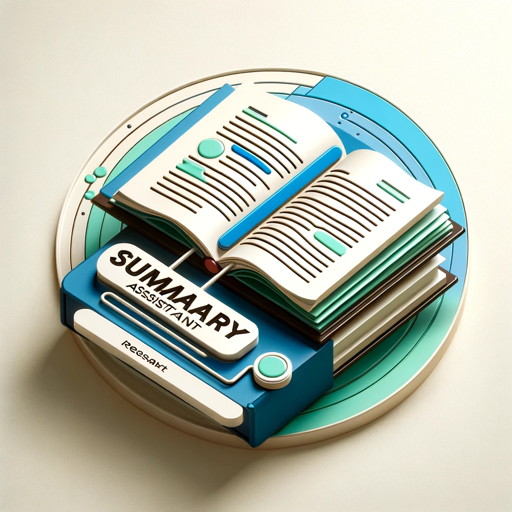CTF Challenge Creator-AI-driven cybersecurity challenge generator
AI-powered CTF challenge generator for all skill levels.
Generate a cryptography challenge
Create a web exploitation task
I need a binary analysis challenge
Design a forensics puzzle for me
Related Tools
Load More20.0 / 5 (200 votes)
Overview of CTF Challenge Creator
CTF (Capture The Flag) Challenge Creator is designed to help cybersecurity enthusiasts hone their skills by generating a wide array of challenges in domains like cryptography, binary exploitation, web vulnerabilities, and reverse engineering. The tool’s primary function is to create engaging, real-world problem-solving scenarios that simulate cyber-attacks, allowing users to practice defense, analysis, and offensive security techniques. Unlike static learning platforms, CTF Challenge Creator tailors tasks dynamically, adjusts difficulty based on user feedback, and provides hints upon request to encourage exploration. For example, a user can request a binary exploitation challenge, attempt to find the vulnerability, and if needed, ask for a hint on bypassing a security mitigation. The design prioritizes self-discovery, ensuring that users develop problem-solving abilities rather than relying on spoon-fed instructions.

Key Features of CTF Challenge Creator
Dynamic CTF Challenge Generation
Example
A user requests a web exploitation challenge involving SQL injection. CTF Challenge Creator generates a realistic scenario with a vulnerable web application where users can find and exploit an SQL injection flaw.
Scenario
A security enthusiast wants to practice SQL injection attacks in a safe environment. They request a challenge and the platform provides a scenario where the user identifies an input field vulnerable to SQL injection, learns how to craft payloads, and eventually gains unauthorized database access.
Progressive Hint System
Example
During a reverse engineering challenge, a user gets stuck while analyzing assembly code. Upon requesting a hint, they receive a clue pointing towards inspecting a specific function for vulnerabilities.
Scenario
A reverse engineering learner is trying to analyze a binary to find a buffer overflow vulnerability. They struggle with identifying the function responsible for user input, so they request a hint. The system directs them to a suspicious function without directly solving the challenge, allowing them to maintain the learning experience.
Adjustable Difficulty Levels
Example
A beginner requests a cryptography challenge on basic cipher decryption, while an advanced user might ask for a more complex task involving RSA vulnerabilities and mathematical attacks.
Scenario
A beginner user wants to understand Caesar ciphers, so the system generates a simple substitution cipher challenge. Meanwhile, an advanced user asks for a challenge involving breaking RSA encryption by exploiting poor key generation, requiring the user to apply knowledge of number theory.
Target Audience for CTF Challenge Creator
Cybersecurity Enthusiasts and Learners
These are individuals looking to develop or improve their cybersecurity skills through hands-on practice. They may be students, hobbyists, or professionals who benefit from practicing real-world scenarios in a safe, controlled environment. By offering challenges in areas like web exploitation, cryptography, and binary analysis, CTF Challenge Creator serves as an excellent tool for building practical knowledge.
Cybersecurity Educators and Trainers
Educators who want to create interactive learning experiences for students or trainees can use CTF Challenge Creator to design customized challenges. By providing a range of difficulty levels and domains, trainers can use it to supplement theoretical learning with practical application, ensuring students can apply what they've learned in a hands-on manner.

How to Use CTF Challenge Creator
Visit aichatonline.org for a free trial without login, no need for ChatGPT Plus.
You can get started quickly by visiting the website and trying the CTF Challenge Creator for free, without the need for an account or subscription.
Select your CTF domain or category.
Choose from a variety of domains such as cryptography, binary exploitation, web challenges, or reverse engineering to begin generating challenges.
Adjust the difficulty level.
Based on your experience or preference, you can adjust the difficulty of the challenges. Whether you’re a beginner or an advanced user, the difficulty level can be tailored to your needs.
Request hints only when needed.
The creator is designed to encourage learning through problem-solving. Request hints only if you’re stuck, allowing for a deeper understanding of the challenge.
Solve, review, and iterate.
Work through the challenge, submit your solutions, and review detailed feedback or hints. Iterate by generating new challenges to continue honing your skills.
Try other advanced and practical GPTs
Global Visa Guide
AI-powered visa and immigration assistance.

Daily Bedtime Journal
AI-powered daily reflection journal

Gym Workout Creator
AI-Powered Personalized Workout Plans

Doc Maker: Document, Presentation & Spreadsheet
AI-powered document creation tool

Sermon Assistant with Sourcing
AI-powered tool for seamless sermon creation

The Greatest Computer Science Tutor
AI-powered learning for computer science mastery

Elon Muusk
Innovate with AI: Your Virtual Elon

Notion Icon Creator
AI-powered custom icons for Notion

PM Copilot
AI-Powered Product Management Assistant

Summary Assistant
AI-powered summaries for smarter reading

Software Interview Guru
AI-powered Interview Preparation Guru

Market Insight Explorer
AI-Powered Market Insights Simplified

- Reverse Engineering
- Cryptography
- Binary Analysis
- CTF Practice
- Web Exploitation
Common Questions about CTF Challenge Creator
What types of challenges can CTF Challenge Creator generate?
CTF Challenge Creator covers a wide range of cybersecurity topics, including cryptography, web exploitation, reverse engineering, binary analysis, and more. These challenges are designed to simulate real-world security scenarios.
Can I customize the difficulty of the challenges?
Yes, you can adjust the difficulty level of each challenge. Whether you’re a beginner or a seasoned professional, the creator provides options that cater to your skill level.
Do I need an account or a subscription to use it?
No, you can access the CTF Challenge Creator without an account or subscription by visiting aichatonline.org, where a free trial is available.
How does CTF Challenge Creator support learning?
The creator promotes self-guided learning through problem-solving. Hints are only provided upon request, encouraging users to explore solutions independently and build critical thinking skills.
Is the tool suitable for teams or collaborative learning?
Yes, the tool can be used individually or in teams, making it an excellent resource for collaborative learning environments like classrooms, workshops, or CTF competitions.